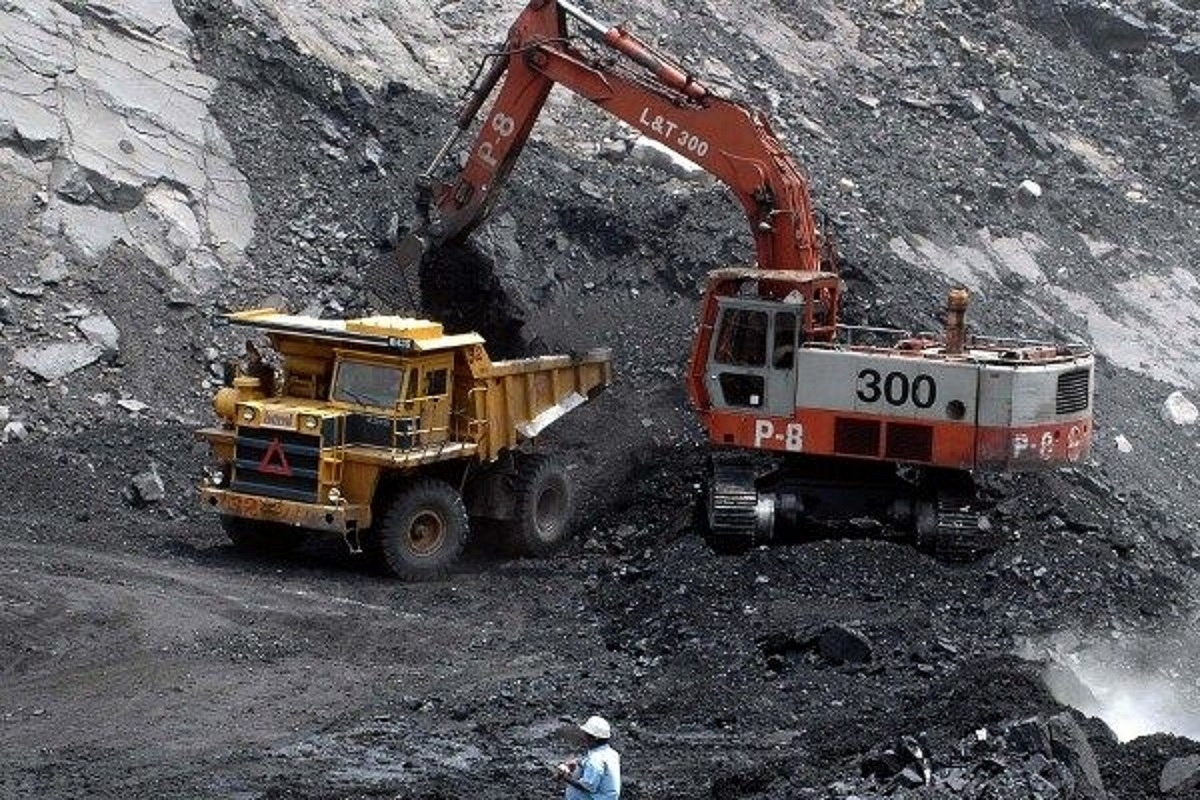Economics
Union Government Approves Policy For Using Land Reclaimed From Exhausted Coal Mines For Infrastructure
- The policy allows utilisation of lands no longer suitable for coal mining activities or land that has been mined out, for infrastructure related to energy and mining.

A coal mine.
The Union Cabinet chaired by Prime Minister Shri Narendra Modi on Wednesday approved the policy for use of land acquired under the Coal Bearing Areas (Acquisition and Development) Act, 1957, so that land which is mined out or practically unsuitable for coal mining can be utilised for developing and setting up infrastructure related to coal and energy.
The Coal Bearing Areas (CBA) Act provides for the acquisition of land containing or likely to contain coal deposits. Under the provisions of this act, the land is acquired for government companies only for coal mining and activities strictly incidental to mining purposes. The CBA Act provides for acquisition of coal bearing lands and their vesting in government company, free from any encumbrance.
Policy Contours
The approved policy provides a clear policy framework for utilisation of two categories of lands acquired under the CBA Act. The first category includes such land which are no longer suitable or economically viable for coal mining activities and the second one includes land from which coal has been mined out/de-coaled and has been since reclaimed.
Under the approved policy, there would be no transfer of ownership from government companies — government coal companies, such as Coal India Limited (CIL) and its subsidiaries shall remain owners of the lands acquired under the CBA.
The government company which owns the land would lease such land for a specific period given under the policy and the entities for leasing shall be selected through a transparent, fair and competitive bid process and mechanism in order to achieve optimal value.
The policy allows only leasing of the land for the specified purposes given in the policy. These include setting up of coal washeries/conveyor systems/ coal handling plants/coal gasification and coal to chemical plants/thermal and renewable power projects; construction of railway sidings; rehabilitation and resettlement of project affected families due to acquisition of land under the CBA Act or other land acquisition law; setting up of coal development related infrastructure including compensatory afforestation; providing for right of way; and setting up of energy related infrastructure.
Key Benefits
The lands which are mined out or are practically unsuitable for coal mining are prone to unauthorised encroachment and entail avoidable expenditure on security and maintenance. The new policy will encourage investment in backward areas of the country and lead to generation of a large number of direct and indirect employment.
Utilisation of already acquired land would also prevent fresh acquisition of land and related displacement and would promote local manufacturing and industries.
Under the new policy regime, government coal companies such as CIL can deploy private capital in joint projects for coal and energy related infrastructure development activities. The unlocking of non-minable land will also help these companies in reducing its cost of operations as it will be able to set up coal related infrastructure and other projects such as solar plants on its own land by adopting different business models in partnership with the private sector.
It will make coal gasification projects viable as coal need not be transported to distant places. Coal gasification projects promote an alternate and comparatively cleaner use of coal and help in ensuring relevance of coal in view of the COP26 pledges. The fresh policy push will help India achieve the target of 100 million tonnes (MT) of coal gasification by 2030.
Rehabilitation And Resettlement
Rehabilitation and resettlement (R&R) issues are intrinsic to the development of the coal sector in India, and thus requires active participation of the affected persons, rather than as externally-imposed requirements.
The policy initiative to use the land for R&R will address the demand of the displaced families as they always prefer to stay as close as possible to their original residential places. This will also help in obtaining local support for coal projects.
The proposal to utilise land for rehabilitation purposes would ensure proper utilisation of land and would eliminate wastage of all-important land resources, avoid acquisition of fresh chunks of land for rehabilitation of project affected families, eliminate loading of additional financial burden on the projects and increase profit.
Support Swarajya's 50 Ground Reports Project & Sponsor A Story
Every general election Swarajya does a 50 ground reports project.
Aimed only at serious readers and those who appreciate the nuances of political undercurrents, the project provides a sense of India's electoral landscape. As you know, these reports are produced after considerable investment of travel, time and effort on the ground.
This time too we've kicked off the project in style and have covered over 30 constituencies already. If you're someone who appreciates such work and have enjoyed our coverage please consider sponsoring a ground report for just Rs 2999 to Rs 19,999 - it goes a long way in helping us produce more quality reportage.
You can also back this project by becoming a subscriber for as little as Rs 999 - so do click on this links and choose a plan that suits you and back us.
Click below to contribute.
Latest